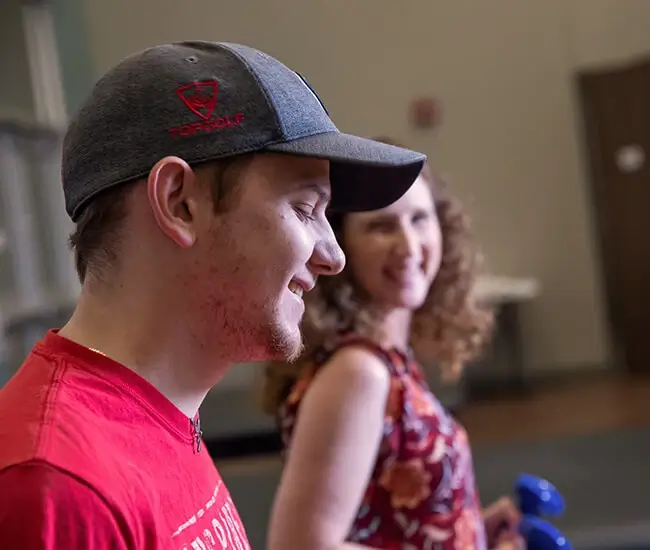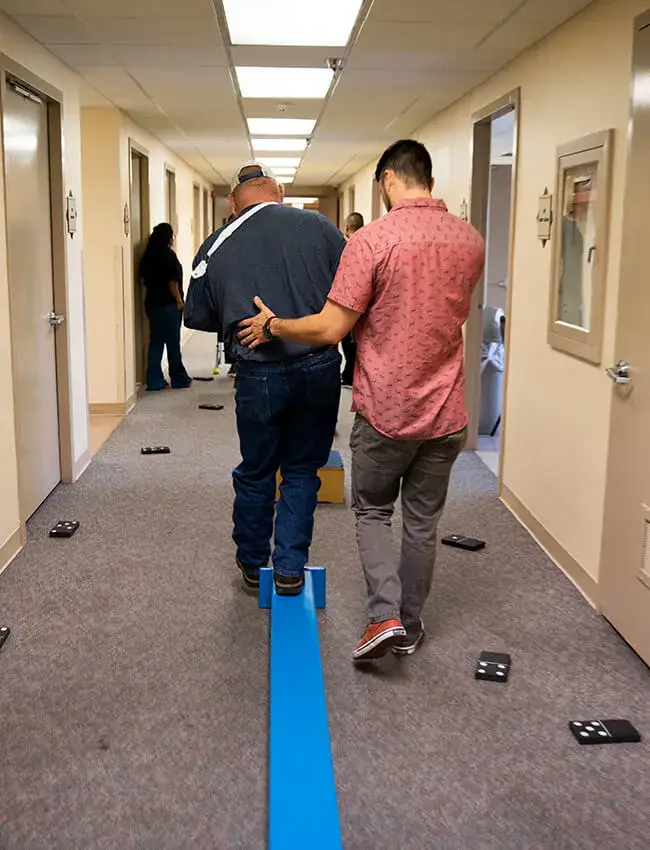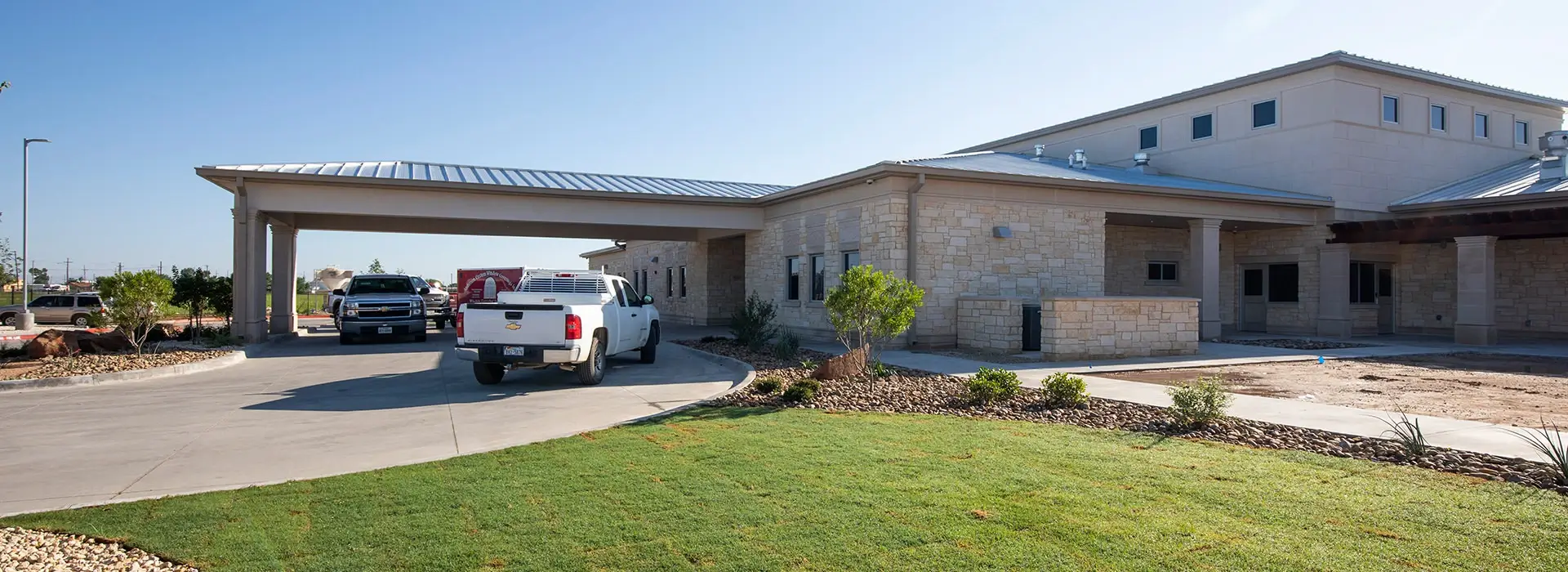Moody
Neurorehabilitation
Institute in Lubbock
Providing personalized rehabilitation services in a state-of-the-art facility.
Phone: (806) 281-5443
Referral Fax: (806) 281-5443
OVERVIEW
Revolutionizing Neuro Rehab And Stroke Recovery In Lubbock
Looking for expert neuro rehab and stroke recovery services in Lubbock? At Moody Neurorehabilitation Institute in Lubbock, we specialize in transforming lives through personalized rehabilitation programs designed to optimize recovery and enhance quality of life.
Comprehensive Neuro Rehabilitation
Whether you are recovering from a stroke or seeking neurological rehabilitation, our clinic offers cutting-edge therapies and innovative approaches to aid in your recovery journey. Our expert team works collaboratively to create personalized treatment plans tailored to your specific needs. We utilize the latest technology and evidence-based practices to ensure you receive the highest quality care, helping you regain your strength, mobility, and independence.
Start Your Journey to Enhanced Wellness
Contact us today to begin your path to enhanced wellness and recovery. Our dedicated team is here to provide personalized support and innovative treatments to help you achieve your neuro rehab and stroke recovery goals.
Family Tour
At Moody Neuro, we provide tours of our facilities to help you make an informed decision and choose the best program for your loved one. Learn more about our Lubbock facility below or contact us to schedule a tour and an opportunity to speak with our staff one-on-one at your convenience.

ABOUT LUBBOCK
Moody Neuro in Lubbock is located next to Trustpoint Rehabilitation Hospital and is just a few miles away from Covenant Lakeside Hospital and University Medical Center. Moody Neuro’s access to the community allows patients to practice important living skills in a real world, community context and better preparing them, for re-entry into their respective communities.
Residential program patients live on-site which allows the treatment team to better observe the patient’s progress while providing skilled therapies throughout the day. Our patients receive four to five hours of skilled therapy per day, delivered by a licensed Moody Neuro staff member, Monday through Friday from 9:00am-4:00pm. Our Therapeutic Assistants (TA’s) provide direct care and reinforce treatment team goals after completion of the therapy day.
DADS#: 110174
THERAPIES
Moody Neuro provides a wide range of therapeutic services, based on patient needs. We have a Physical Medicine and Rehabilitation (PM&R) physician rounding weekly as well as on-site nursing staff. Moody Neuro provides medical monitoring and care for patients who are medically complex. For patients who are higher functioning physically and cognitively, and who have the potential to live more independently, Moody Neuro provides on-site apartment trials.
Neuropsychology & Counseling
Following brain trauma or acquired brain injury, patients may exhibit modifications to behavior, emotion, and cognitive abilities…
Speech & Language
The ability to communicate is a vital part of everyday life. However, when a person experiences an acquired brain injury, fundamental components to communication such as speech, or even swallowing my not be possible…
Physical Therapy
Physical therapy plays a very important role in the rehabilitation process. Our Physical Therapy (PT) Department is committed to assisting…
Occupational Therapy
The “occupation” in occupational therapy (OT) refers to more than just paid employment. It encompasses everything that “occupies” a person’s time…
Community Integration
Community integration involves enabling individuals with a brain injury to live successfully in their community and participate fully in all aspects of community life…
Aquatic Therapy
Aquatic therapy is an appropriate and effective alternative to conventional land-based treatment. Research demonstrates that patients receiving aquatic rehabilitation regain functional range of motion and gait at a faster rate than through conventional physical therapy alone…
Residential
At Moody Neuro, the process of recovering from a brain-injury is comprehensive and immersive. As a result, it is necessary that certain patients conduct post-acute rehabilitation, or receive long-term care in a residential setting…
Technology
As pioneers in post-acute brain injury treatment and rehabilitation, Moody Neuro leverages a portfolio of advanced treatment technologies and equipment to help patients regain independence and an enhanced quality of life…
Outpatient
Out-patient services are recommended and provided depending upon the presenting needs, preferences, and available resources of the patient…
KEY STAFF
Moody Neuro in Lubbock staff are specialized in brain injury treatment and rehabilitation and have a thorough understanding of the cognitive and physical needs of individuals with acquired brain injury. Get to know the Lubbock team here.
ROGER WOLCOTT, MD
MEDICAL DIRECTOR, LUBBOCK
DR. BEI ZHANG
ANDY DAVIES
CLINICAL MANAGER
TAWALLA ESTELLE
RESIDENTIAL MANAGER – LUBBOCK

Location Activities
Therapy staff encourages patients to rediscover hobbies, develop new interests, and explore recreational resources available to them in the community. The Therapeutic Assistants at Moody Neuro help develop cognitive and social skills as well through leisure activities of interest to the patients. The goal is to help individuals relearn skills needed to plan, organize, and enjoy their leisure time while also improving their social interaction skills.
The staff also arranges for patients to attend local events such as:
- Texas Tech football, basketball, and baseball games
- Lubbock Rodeo
- Camping outings to Buffalo Springs
- Lubbock Arts and Crafts Festival
Success Stories

